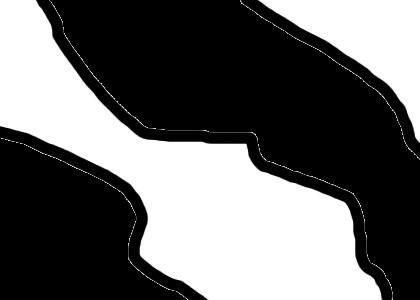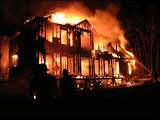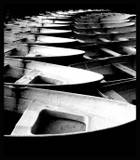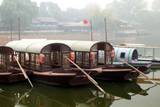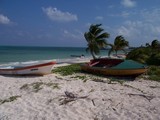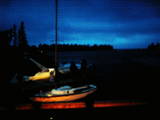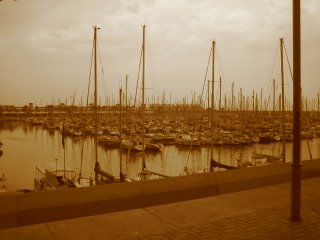The Dieppe Raid took place on August 19, 1942. Of the 6000 some troops in the Raid, over 5000 were Canadians, most from the 2nd Canadian Infantry Divison.
Another Canadian unit, the Black Watch Regiment, suffered over 200 dead on the beach, the heaviest loss by any Canadian battalion in a single day in the whole war. The losses to the British Airforce on that day were equally grim - the 119 aircraft lost, again the most of any day in the war.
The gains of that Raid are always presented as lessons learned that benefited others in future battles. It is usually remembered, especially in Canada, as a grevious mistake that took over a thousand Canadian lives and made prisoners of over two thousand others. The poor planning and execution of the Raid led some to believe that it was deliberately sabotaged by the British to allay pressures from the Russians and the American public for a full-scale invasion for which they weren't ready.
Time and energy is spent in assigning blame and railing at the waste of it and the tragedy of it, and the stupidity and incompetence of it. And, there certainly was a depressing abundance of all of the above during that Raid and that war - and any other war, for that matter.
But a waste is one thing that Dieppe emphatically was not!
Before getting to that though - this seemingly hidden knowledge is, as is often the case, right out in the open. Residing in a classic in military history, written by one of the most famous of miltary thinkers - Liddell Hart. The book is titled "
The other side of the Hill", which is part of a quote attributed to Wellington who observed that he spent much of his time trying to guess at the what the enemy command was thinking, planning, or about to be executing - "they", of course, being on "the other side of the hill".
In it, Liddell Hart interviews German Generals at Nuremberg after the war. They are frank and, for the most part, held to be honest. Mr. Hart would certainly have seen through any material mis-statements. And, it is here, in the Generals' answers to his questions that the true impact of Dieppe emerges.
Hitler was jumpy about a western invasion from 1941 onward. It took a long time coming, probably too long. When it did occur, Russia had already won the European War; the turning point in that victory was the Battle of Stalingrad which ended in February of 1943 with the surrender of
Generalfeldmarschall Friedrich Paulus.
Despite propaganda stating otherwise, that terrifying seven month Battle could have gone either way. One reason it was won by the Russians, is that in August of 1942, at the very start of the Battle, two of the best German Divisions, the SS-Leibstandarte and the Gross-Deutschland, were transferred out of Stalingrad. Their destination was the French coast. And, they were to be transferred to the West because Hitler was unnerved by the Raid at Dieppe. Only the SS-Leibstandarte made it to France, the Gross-Deutchland was diverted, but the salient point is that they both were both absented from Stalingrad because of the Dieppe Raid.
Generals Kluge, Keitel & Zeitzler felt that the presence of those two Divisions at Stalingrad would have turned the tide in Germany's favour. If Germany has won the Battle of Stalingrad, things elsewhere could have quickly turned her way as well. The edge between one side and the other being ever so fine.
In this post, two lessons are posited from Dieppe - Lesson One: that despite being a tactical fiasco, it had a huge impact on the European War -
the Raid's timing was critical; the ever expanding ripples of events and information are often difficult to see or understand even years later; Lesson Two: in this case, however, it was not hard to see - it was seen, it was communicated, and it was ignored and left lying unknown while the blowhards constantly blew about what a waste Dieppe was; firmly entrenched in the small view, the one or two ripples nearest to them.
So we end up with two different flavours of Ignorance which is the dish that the world serves the best and the most. And, it is the starting point.
Copyright Louis Evan Palmer 2006
The Lessons of Dieppe, Louis Evan Palmer, The Way It Can Be, http://twicb.blogspot.com
BUY BOOKS BY LOUIS EVAN PALMER

